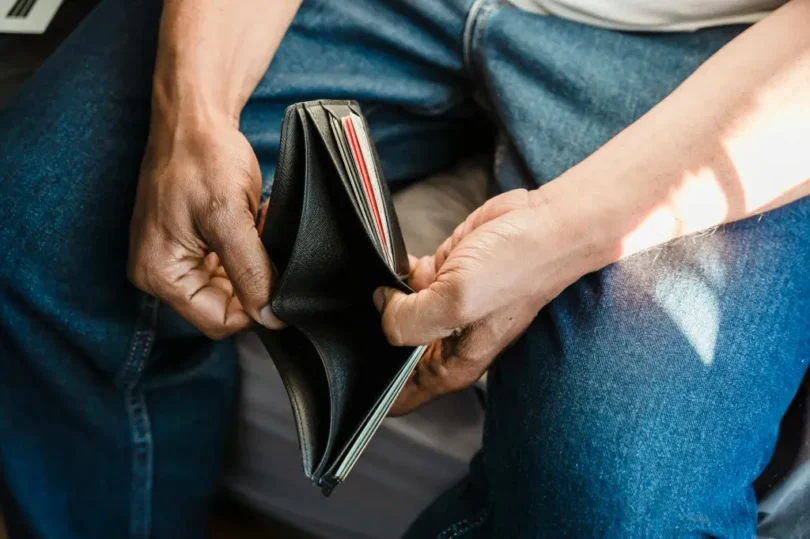Hitting 30 can be both exciting and daunting. It’s often seen as the age where you’re expected to have your life somewhat sorted, particularly in terms of finances. But with rising costs, student debt, and unexpected life expenses, it’s easy to feel like you’re falling behind. However, being broke by 30 doesn’t have to be inevitable! Let’s dive deep into strategies to help you save money, make better financial decisions, and secure your financial future.
Introduction
Your 30s can be a pivotal decade financially. For many, this is the time to lay down solid financial foundations. The idea of being broke by 30 is a common fear, but it’s also avoidable with the right approach. Whether you’re working your first full-time job or juggling multiple gigs, building financial resilience is possible. With some strategic planning and consistent habits, you can set yourself up for success. The key? Start early and stay committed.
How Not to Be Broke by 30
The idea of being “broke” can look different for everyone, but it generally refers to having little to no savings, living paycheck to paycheck, or carrying overwhelming debt. If you’re in your 20s and you’re already feeling financial strain, it’s crucial to make changes now so that by the time you hit your 30s, you’ve built up a comfortable financial buffer.
Here’s how not to be broke by 30:
Set Clear Financial Goals
Having clear financial goals is the foundation of staying financially secure. What do you want to achieve by the time you’re 30? Is it building a substantial emergency fund, paying off debt, or buying a home? The more specific your goals, the easier it is to stay on track. Create a timeline for each goal and break them into manageable steps.
For example, if your goal is to save $10,000 by your 30th birthday, break it down into monthly savings targets. This gives you a clear roadmap to follow.
Budgeting is Your Best Friend
Budgeting is perhaps the most important tool when it comes to saving money and ensuring you’re not broke. By keeping a close eye on your income and expenses, you’ll have a clearer picture of where your money is going. Many people assume they know their spending habits but are often surprised by how much goes towards unnecessary expenses.
Start by tracking your income and expenses for a month. Are you spending too much on eating out, subscriptions, or impulse purchases? Use budgeting apps like Mint or YNAB (You Need A Budget) to automate this process and keep you accountable.
Pay Off Debt Strategically
Debt can be one of the biggest obstacles in achieving financial freedom. Student loans, credit card debt, or car loans can quickly accumulate and hinder your ability to save money. Prioritize paying off high-interest debts first, as these will cost you the most in the long run.
If you’re struggling with multiple debts, consider using the snowball method, where you focus on paying off the smallest debts first while making minimum payments on the larger ones. This method gives you small wins early on, boosting your motivation to tackle larger debts.
Save Money Early and Consistently
The earlier you start saving money, the better. Compound interest – the interest earned on your savings plus any interest already earned – is one of the most powerful tools for building wealth. Even if you can only save a small amount each month, it will grow over time.
Open a high-interest savings account and set up automatic transfers from your checking account every month. Automating your savings removes the temptation to spend, ensuring that you’re consistently putting money aside.
Emergency Funds are Non-Negotiable
Life is unpredictable. Medical emergencies, job loss, or unexpected repairs can drain your finances if you’re not prepared. This is why an emergency fund is essential. Aim to save at least three to six months’ worth of living expenses in an easily accessible savings account.
Having an emergency fund means you won’t need to rely on credit cards or loans in a crisis, keeping your financial health intact.
Invest in Your Future
Simply saving money isn’t enough. Inflation erodes the value of money over time, meaning the $10,000 you save today won’t be worth the same in the future. This is where investing comes in. By investing your money, you’re allowing it to grow at a rate faster than inflation.
Consider low-cost index funds, which are a great way to invest in a broad market with relatively low risk. You can also explore other options such as real estate, stocks, or bonds, depending on your risk tolerance and financial goals.
Avoid Lifestyle Inflation
As you start earning more, it can be tempting to increase your spending as well. This is known as lifestyle inflation. While it’s okay to reward yourself occasionally, increasing your expenses in proportion to your income can prevent you from saving money effectively.
Instead, try to live below your means. Keep your expenses steady even as your income rises, and funnel the difference into savings or investments. This strategy will help you avoid being broke despite a higher salary.
Build Multiple Income Streams
Relying on a single source of income can be risky. What happens if you lose your job or your business struggles? Building multiple streams of income can safeguard you from financial instability.
You can start a side hustle, freelance, or invest in passive income opportunities like real estate or stocks. Diversifying your income streams means you’re not putting all your eggs in one basket.
Focus on Long-Term Financial Planning
It’s easy to get caught up in the day-to-day financial decisions and lose sight of the bigger picture. Long-term financial planning ensures that you’re not just thinking about today, but also about your future self.
This includes planning for retirement, even if it seems far off. Start contributing to a retirement fund, like a 401(k) or IRA, as early as possible. The earlier you start, the more time your money has to grow.
How to Save Money in Your 30s
By the time you hit your 30s, your financial responsibilities may have increased – perhaps you have a mortgage, children, or a higher cost of living. However, this doesn’t mean you can’t save money effectively. In fact, your 30s are a critical time to ramp up your savings efforts.
Here are some tips to save money in your 30s:
- Maximize retirement contributions: If your employer offers a 401(k) match, take full advantage of it. This is essentially free money that boosts your retirement savings.
- Cut unnecessary expenses: Review your budget regularly and identify areas where you can cut back. Cancel unused subscriptions or downgrade services you rarely use.
- Plan your purchases: Instead of impulse buying, plan your purchases in advance. This allows you to take advantage of sales, discounts, or more affordable alternatives.
- Shop smarter: Use cash-back apps, coupons, or rewards programs to get the best deals on your purchases.
Avoiding Financial Pitfalls in Your 30s
Even with the best-laid financial plans, it’s easy to fall into traps that leave you broke by 30. Here are some common pitfalls to avoid:
- Overleveraging with credit: Credit cards and loans can seem like a quick fix, but they often come with high interest rates that make them difficult to pay off.
- Failing to adjust your budget: As your income and responsibilities grow, so should your budget. Make sure to adjust it regularly to accommodate new expenses without neglecting savings.
- Not preparing for taxes: Tax season can sneak up on you, and without proper planning, you could owe more than you anticipated. Set aside money for taxes throughout the year to avoid a financial shock.
The Importance of Financial Education
One of the best ways to ensure you’re not broke by 30 is to educate yourself about money. Financial literacy isn’t something that’s taught in most schools, so it’s up to you to seek out this knowledge.
Books, podcasts, blogs, and even online courses can provide valuable insights into saving money, investing, and debt management. The more you learn, the better equipped you’ll be to make informed financial decisions.
Staying Motivated: Why Your 30s Matter
Your 30s are often considered the prime years to build wealth, and that’s why it’s important to stay motivated. Remember that every dollar you save or invest now will compound and grow over time. Whether you’re just getting started or are well on your way to financial freedom, it’s never too late to make positive changes.
The road to financial independence can be long, but staying committed will pay off in the end.
Conclusion
Being broke by 30 is not a fate you have to accept. With discipline, careful planning, and the right financial strategies, you can achieve financial stability and avoid the common pitfalls that leave many struggling. Start setting goals, save money consistently, and make smart investments. Your 30-year-old self will thank you for the financial foresight and security you create today.
FAQs
How can I save money effectively in my 30s?
Prioritize creating a budget, eliminating unnecessary expenses, and maximizing your savings contributions. Also, consider automating your savings and investing in low-risk, high-reward opportunities.
What are the best ways to pay off debt by 30?
Start by paying off high-interest debts first, like credit card debt. Use the snowball method to gain momentum and stay motivated. Make paying off debt a priority before taking on new financial commitments.
Why is building an emergency fund essential?
An emergency fund ensures that you have money set aside for unexpected life events such as medical bills, car repairs, or job loss. This can prevent you from falling into debt when emergencies arise.
Is it possible to avoid being broke in your 30s without a high salary?
Yes! Even with a modest income, smart budgeting, saving consistently, and managing debt effectively can help you avoid being broke. It’s not about how much you make but how you manage what you earn.
How does lifestyle inflation affect my savings?
Lifestyle inflation occurs when your expenses rise as your income increases. Avoiding this by maintaining a modest lifestyle and saving the difference between your income and expenses can significantly boost your savings.
What should I prioritize financially in my 30s?
Focus on building an emergency fund, paying off debt, and maximizing retirement savings. Investing for the long term is also important to ensure your money grows over time.








Leave a Comment